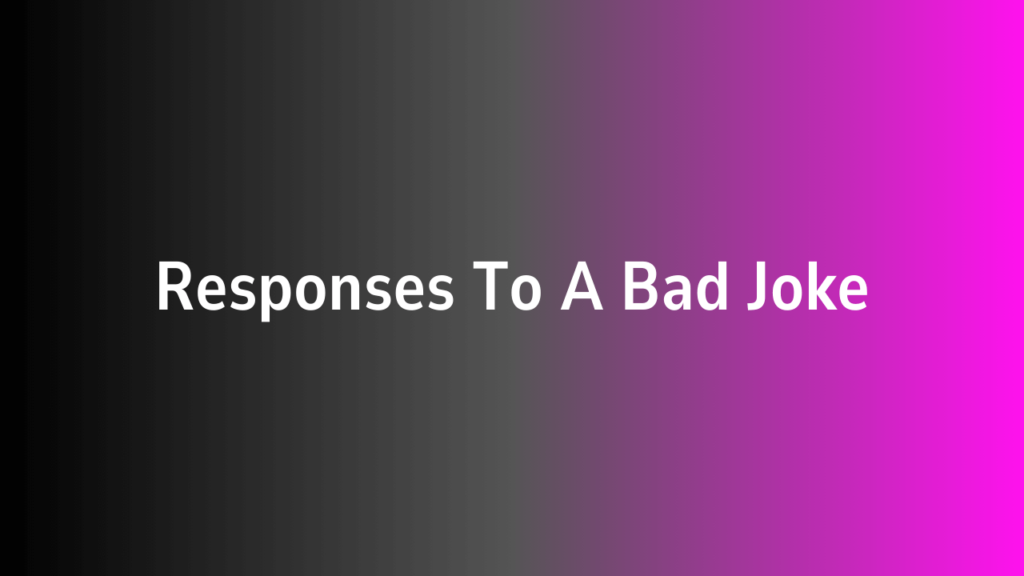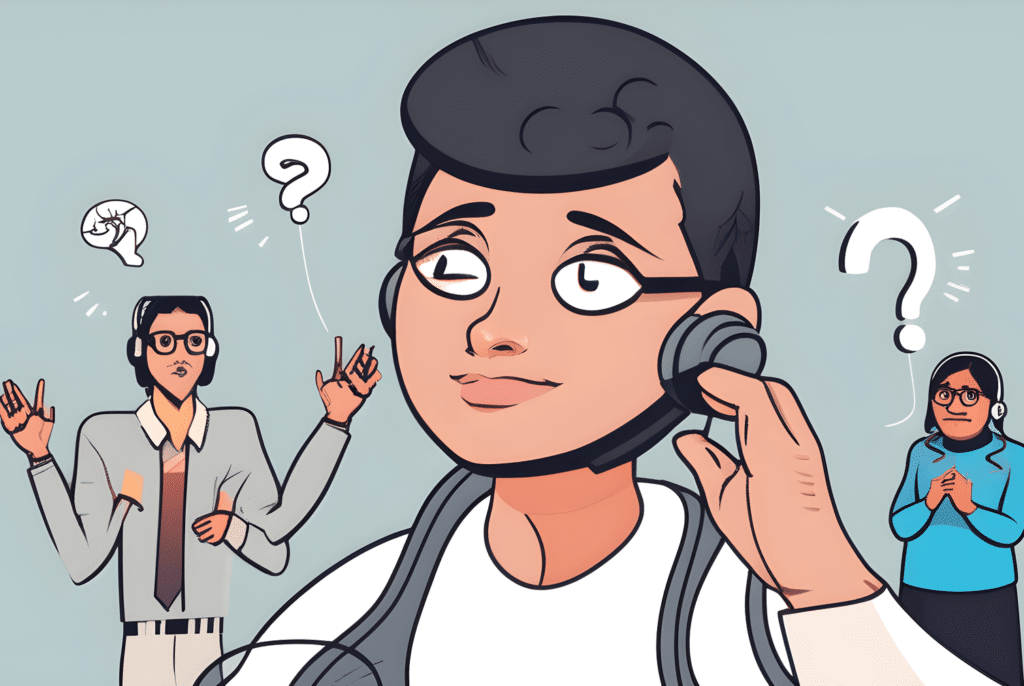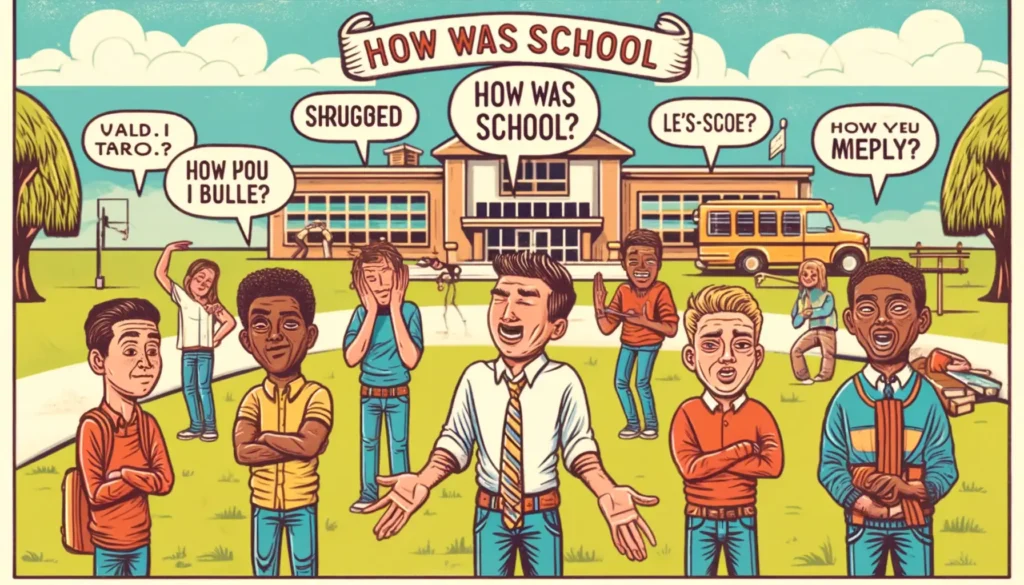Humor plays an important role in our daily interactions. A well-timed joke can lighten the mood, create bonds, and spark laughter. However, not all jokes land as intended, and sometimes, we’re faced with a joke that just doesn’t hit the mark. When someone cracks a bad joke, it can create an awkward moment, leaving you unsure of how to respond.
How you respond to a bad joke is important, as it can help manage the atmosphere and prevent the conversation from becoming uncomfortable. In this blog post, we will discuss the different ways to respond to a bad joke with ease, confidence, and humor. Whether you want to defuse the situation with grace or keep the interaction lighthearted, we’ve got you covered with tips, examples, and suggestions on how to react.
Why Do People Tell Bad Jokes?
Before we dive into the responses, it’s important to understand why someone might tell a bad joke. Understanding the intent behind a joke can help you decide how to respond.
- Trying to Be Funny:
- Sometimes, people try too hard to be funny, but their attempt just doesn’t land the way they expected. They might not realize the joke is bad or in poor taste.
- Testing Humor:
- Some people test the waters to see how others will react to their humor. They may tell a joke to gauge whether or not the audience finds them funny.
- Breaking the Ice:
- In certain situations, especially among new acquaintances or in group settings, someone might tell a bad joke as an icebreaker to initiate conversation or ease tension.
- Misunderstanding Social Context:
- Jokes that are funny in one setting might not work in another. A person might think their joke is appropriate, but it may be out of place given the context.
- Attempting to Be Unique:
- Some people try to be original and may come up with jokes that are unconventional or strange. While they might have good intentions, these jokes could come off as awkward or nonsensical.
Types of Bad Jokes
Understanding the types of bad jokes you might encounter can help you prepare for how to respond. Here are a few examples:
- Jokes That Fall Flat:
- These are jokes that lack timing or delivery. They might be too random or just not funny.
- Example: “Why don’t skeletons fight each other? They don’t have the guts.”
- Jokes That Are Inappropriate or Offensive:
- These jokes can make the situation awkward or even hurtful to some people.
- Example: “Why did the chicken cross the road? To get away from you.”
- Jokes That Are Too Obvious or Cheesy:
- These are jokes that are overused or very basic and don’t provide much surprise.
- Example: “What did one ocean say to the other ocean? Nothing, they just waved.”
- Jokes That Are Misunderstood:
- Sometimes, a joke can be lost in translation or misunderstood because the humor doesn’t fit the situation or audience.
- Example: “I used to play piano by ear, but now I play it by hand.”
How to Respond to a Bad Joke
Now that we understand why bad jokes happen and the different types you might encounter, let’s dive into how to respond. Your response can vary depending on the context, your relationship with the person, and your personal style of humor.
1. Responding with Polite Laughter
If you don’t want to hurt the person’s feelings but don’t find the joke funny, a polite laugh can go a long way. It shows you’re trying to be supportive without overreacting.
- Examples:
- “Haha, that was a good one!”
- “Oh, that’s cute!”
- “I see what you did there!”
By laughing, you acknowledge the effort the person put into telling the joke without directly criticizing it. It’s a gentle and easy way to keep the conversation going.
2. Playful Responses to Acknowledge the Joke
If you want to keep the mood light and humorous without pretending the joke was good, you can offer a playful response. This can show you’re in on the joke, even if it wasn’t the funniest.
- Examples:
- “That’s one way to put it!”
- “Well, that was… something.”
- “I didn’t see that punchline coming!”
These responses show that you are acknowledging the attempt while making light of the situation. It’s a great way to steer the conversation toward a fun, playful atmosphere.
3. Offering a Compliment on the Attempt
Sometimes, it’s best to focus on the effort rather than the outcome. A compliment about the attempt can help keep the interaction positive.
- Examples:
- “You know, I admire your creativity!”
- “That was a unique twist on a classic joke.”
- “You’re definitely not afraid to be original!”
This type of response focuses on the person’s willingness to try and adds a positive spin to the interaction. It helps ease any discomfort without directly confronting the quality of the joke.
4. Making a Self-Deprecating Comment
Using humor to deflect the awkwardness can help lighten the mood. By making a self-deprecating remark, you can turn the situation around and show that you don’t take things too seriously.
- Examples:
- “I think you might be funnier than me—so I’ll just sit this one out.”
- “Wow, you’re on a roll! But maybe I’ll stick to telling the jokes.”
- “I’m just trying to figure out how to top that one.”
Self-deprecating humor can make the moment less awkward and show that you’re comfortable with the situation, even if the joke didn’t land well.
5. Redirecting the Conversation
If the joke was really bad and you want to avoid prolonging the awkwardness, you can smoothly change the subject. This helps steer the conversation away from the uncomfortable moment.
- Examples:
- “Anyway, have you heard about [new topic]?”
- “Speaking of jokes, what’s the funniest thing you’ve heard lately?”
- “So, how’s work been for you? Anything exciting going on?”
By changing the topic, you take control of the conversation and avoid lingering on the bad joke. This is especially helpful if the joke was inappropriate or uncomfortable.
6. Using Humor to Defuse the Situation
If the joke was genuinely awkward, using humor to defuse the tension can lighten the mood. A little cleverness or sarcasm can turn the situation into a laughing moment.
- Examples:
- “I’m going to need a moment to process that one!”
- “That joke’s going to need some work, but I admire the effort.”
- “That’s one for the history books—definitely going down in the record books for best attempt!”
These humorous responses keep things light and demonstrate that you don’t take the situation too seriously.
7. Acknowledging the Awkwardness
Sometimes, it’s okay to directly acknowledge that the joke didn’t land, but in a fun, non-judgmental way. This shows that you’re aware of the awkwardness without making anyone feel bad.
- Examples:
- “Well, that was awkward! But I appreciate you trying.”
- “Okay, that didn’t quite work… but points for effort!”
- “That’s one way to do it, for sure.”
By acknowledging the awkwardness, you show that you are comfortable with it and can laugh it off. It’s a way to diffuse any tension and move forward in the conversation.
8. Turning the Joke Around
If you’re feeling bold, you can turn the bad joke into a moment for your own comedic relief. Making a witty response can help turn the bad joke into a funnier moment.
- Examples:
- “Well, if I were a skeleton, I’d probably find that funny!”
- “Okay, you’ve got me—now it’s my turn. What’s the worst joke you’ve ever heard?”
- “I’ll admit, I didn’t see that one coming. But here’s one for you: Why don’t eggs tell jokes? Because they’d crack each other up.”
By turning the tables and throwing your own joke into the mix, you can save the situation and bring some humor back to the conversation.
Table: Sample Responses to a Bad Joke
| Scenario | Response Example |
|---|---|
| Polite Laughter | “Haha, that’s a good one!” |
| Playful Response | “Well, that was… something!” |
| Complimenting the Attempt | “I admire your creativity!” |
| Self-Deprecating Humor | “I think you might be funnier than me!” |
| Redirecting the Conversation | “Anyway, have you heard about [new topic]?” |
| Humor to Defuse Awkwardness | “I’m going to need a moment to process that one!” |
| Acknowledging the Awkwardness | “Well, that was awkward! But I appreciate you trying.” |
| Turning the Joke Around | “Okay, you’ve got me—now it’s my turn!” |
Conclusion: Responding to Bad Jokes with Confidence
When faced with a bad joke, it’s important to respond in a way that keeps the conversation comfortable and doesn’t create unnecessary tension. Whether you choose to laugh politely, play along with humor, or gently redirect the conversation, your response can shape the atmosphere and make everyone feel at ease. By understanding different strategies for responding to bad jokes, you can ensure that awkward moments don’t turn into uncomfortable silences.
The key is to remember that humor is subjective, and not every joke will land perfectly. By responding with grace, humor, and confidence, you can maintain positive interactions and avoid letting bad jokes ruin the mood. So, the next time you hear a bad joke, use these tips to keep things lighthearted and enjoyable for everyone involved!



